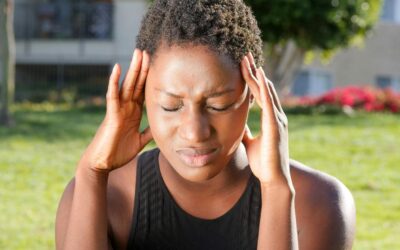PCOS is considered to be a set of symptoms resulting from a problem with your reproductive hormones that can produce irregular periods, excess hair growth or acne—or both—and infertility. It affects 1 in 10 American women of childbearing age. Women sometimes find out they have it when they have trouble getting pregnant. While it is tought that PCOS cannot be cured, a lot can be done to manage the symptoms.
How would I know if I have PCOS?
The symptoms of PCOS can be vague or mimic symptoms of other conditions, so PCOS can go undiagnosed for a while. Unfortunately, there is no single test for it, but a physical exam, ultrasound, and blood tests can help diagnose PCOS.
You need to meet 2 of these 3 “official” criteria to be diagnosed:
- Irregular, heavy, or missed periods due to missed ovulation—the release of an egg from your ovaries. This also keeps you from becoming pregnant.
- Signs of higher-than-normal levels of androgens—male hormones that women also have. They can cause unwanted hair growth, called hirsutism, on your face—especially the upper lip and on the chin, back, chest, and in other places where men typically grow hair. You might lose hair or see it thinning. We can detect those androgens in blood work.
- Collections of 12 or more egg follicles or “cysts” on your ovaries that may be larger than normal. Your doctor will use an ultrasound to check for cysts. (Women who don’t have PCOS may also have cysts, but fewer than 12 don’t meet the criteria for a diagnosis.) Some women with PCOS may not have any cysts.
What else might indicate that I have PCOS?
Other symptoms of PCOS can be acne that develops on your face, chest, and upper back, and put on extra weight, particularly around your middle. You could notice dark skin in the creases of your armpits or on your neck.
What causes PCOS?
We don’t have a definitive cause for PCOS. Researchers think genetics and environmental factors may play a role in PCOS. There’s also a link between PCOS and obesity, and women with PCOS are more likely to be obese. Obesity doesn’t cause PCOS, but makes it worse because of insulin resistance, when high levels of insulin—a hormone made by your pancreas—don’t get used by your body.
How will a PCOS diagnosis affect me and how do we treat it?
Treatments vary depending on the particular phase of your reproductive life and can include lifestyle changes or medications to help control symptoms.
In the lifestyle category, it is recommended that exercise at least 30-40 minutes, 3-4 times a week and stay active on other days. I also suggest a carbohydrate-restricted diet, since women with PCOS don’t always process carbohydrates as easily as other women. Too many refined carbohydrates like sugars can lead to insulin resistance and weight gain.
If you are not getting regular periods currently, this needs to bee addreswith a helath care provide. , Without flow, the lining of the uterus can thicken or overgrow and could develop later into endometrial cancer. Having regular periods helps “thin out” the lining. Treatments siuch as herbs and evidence based nutraceuticals can help to normailze cycles.
It’s important to get those symptoms caused by male hormones under control because even though they’re cosmetic, they can impact your quality of life. That may mean prescribing hormonal birth control if you’re not trying to start a family.



